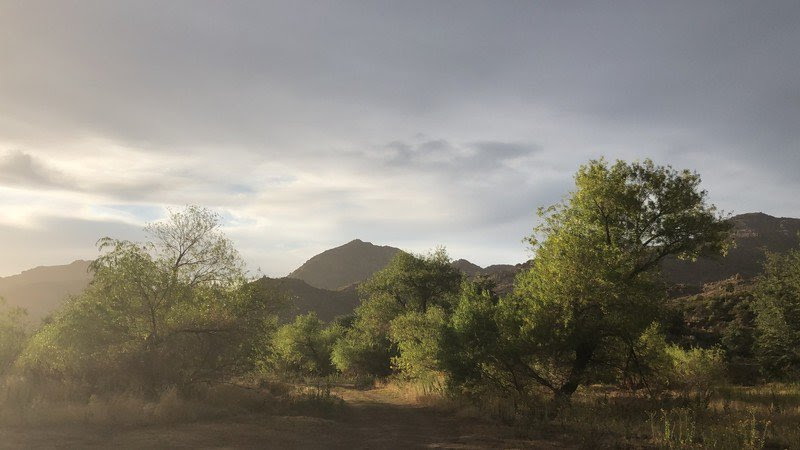
- Details
- By Levi Rickert
In a recent Wall Street Journal op-ed, former U.S. Attorney General William P. Barr pushed back against claims by the San Carlos Apache Tribe, Stronghold Apache, and a coalition of environmental groups that Oak Flat is sacred land that should not be transferred to a foreign-owned mining company.
Barr argues that this interpretation of religious freedom dangerously expands its legal boundaries. While Americans have the right to practice their religion, he maintains that this right does not equate to permanent control over federal land. Courts have repeatedly ruled that incidental effects on religious practice do not constitute constitutional violations when the government manages its land to serve broader public interests.
Weighing in on a contentious legal battle over land use in Arizona, Barr criticized efforts to block development of one of the world’s largest untapped copper deposits. The proposed mine at Oak Flat—a 6.7-square-mile tract of federal land in Arizona’s "Copper Triangle"—has sparked national debate, not only because of its economic significance but also due to religious liberty claims at the heart of the opposition.
Opponents argue that Oak Flat is a sacred site central to Apache religious practice, and that mining operations would irreparably harm their ability to worship. Their lawsuit, supported by religious freedom advocates, claims that the First Amendment and the Religious Freedom Restoration Act protect their continued access to the land for religious use.
The federal government approved a land exchange in 2014, transferring Oak Flat to Resolution Copper in exchange for over 5,000 acres of environmentally and culturally valuable land elsewhere. Supporters of the deal argue that the project will help meet critical national needs—fueling artificial intelligence technologies, supporting defense systems, and reducing U.S. dependence on imported copper.
Barr warns that accepting the plaintiffs’ legal argument could give religious groups sweeping veto power over public projects, setting a precedent that threatens infrastructure development and public land management nationwide. While spiritual beliefs should be respected, he emphasizes that the Constitution guarantees religious groups equal—not exceptional—treatment in the use of public resources.
Ultimately, the case raises urgent questions about how to balance religious liberty with the federal government’s obligation to manage public lands in the national interest—questions with implications far beyond Oak Flat, potentially reshaping how religious claims are treated on government-owned property across the country.
More Stories Like This
Gwich'in Tribal Governments Submit Comments Challenging Fish and Wildlife Service's Inadequate Environmental Review of Arctic Refuge Snow RoadRappahannock Tribe Challenges 9M-Gallon Water Plan
Feds release draft long-term plans for Colorado River management
Apache Leader Walks 60 Miles to Court Hearing That Will Decide Fate of Sacred Oak Flat
Rappahannock Tribe Raises Sovereignty and Environmental Concerns Over Caroline County Water Permit
Help us defend tribal sovereignty.
At Native News Online, our mission is rooted in telling the stories that strengthen sovereignty and uplift Indigenous voices — not just at year’s end, but every single day.
Because of your generosity last year, we were able to keep our reporters on the ground in tribal communities, at national gatherings and in the halls of Congress — covering the issues that matter most to Indian Country: sovereignty, culture, education, health and economic opportunity.
That support sustained us through a tough year in 2025. Now, as we look to the year ahead, we need your help right now to ensure warrior journalism remains strong — reporting that defends tribal sovereignty, amplifies Native truth, and holds power accountable.
 The stakes couldn't be higher. Your support keeps Native voices heard, Native stories told and Native sovereignty defended.
The stakes couldn't be higher. Your support keeps Native voices heard, Native stories told and Native sovereignty defended.
Stand with Warrior Journalism today.
Levi Rickert (Potawatomi), Editor & Publisher


